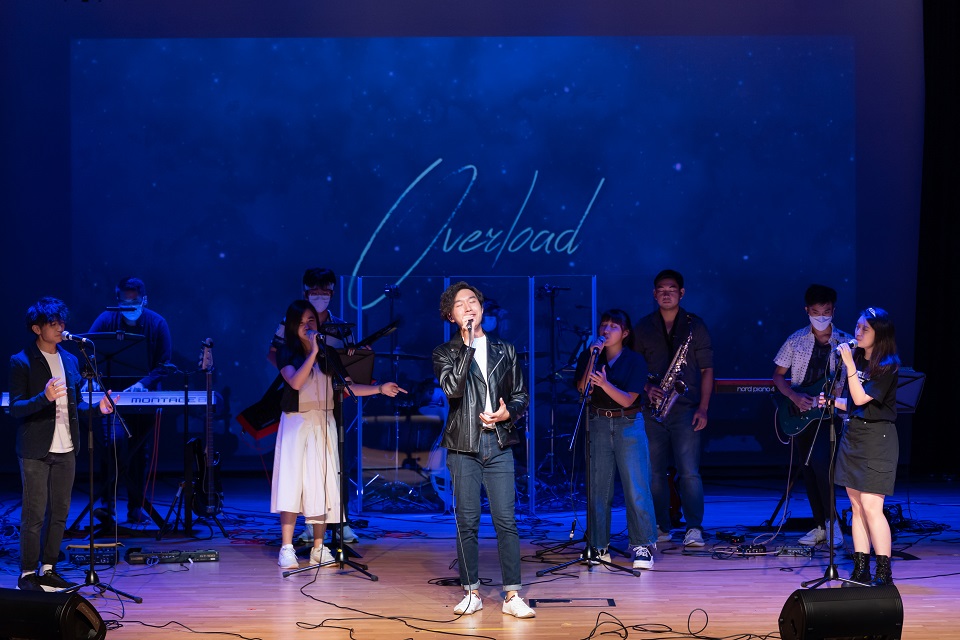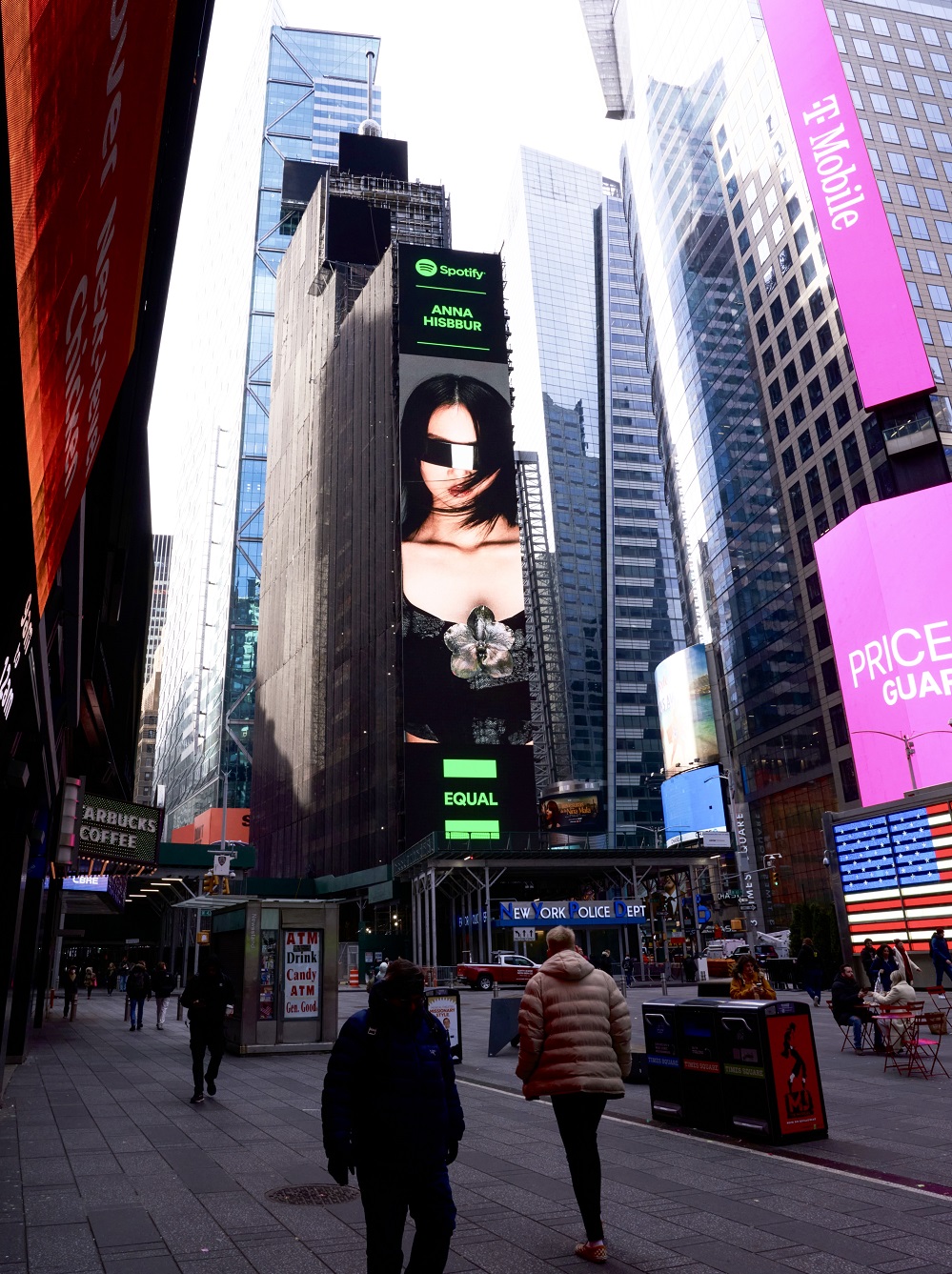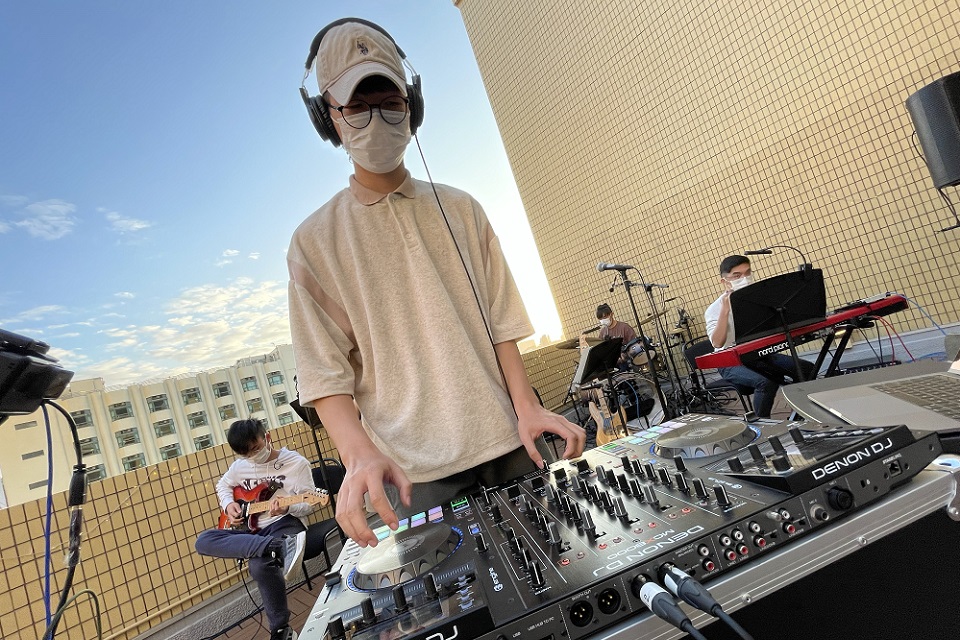Discover HKBU
Shaping the sounds of tomorrow
27 Mar 2023
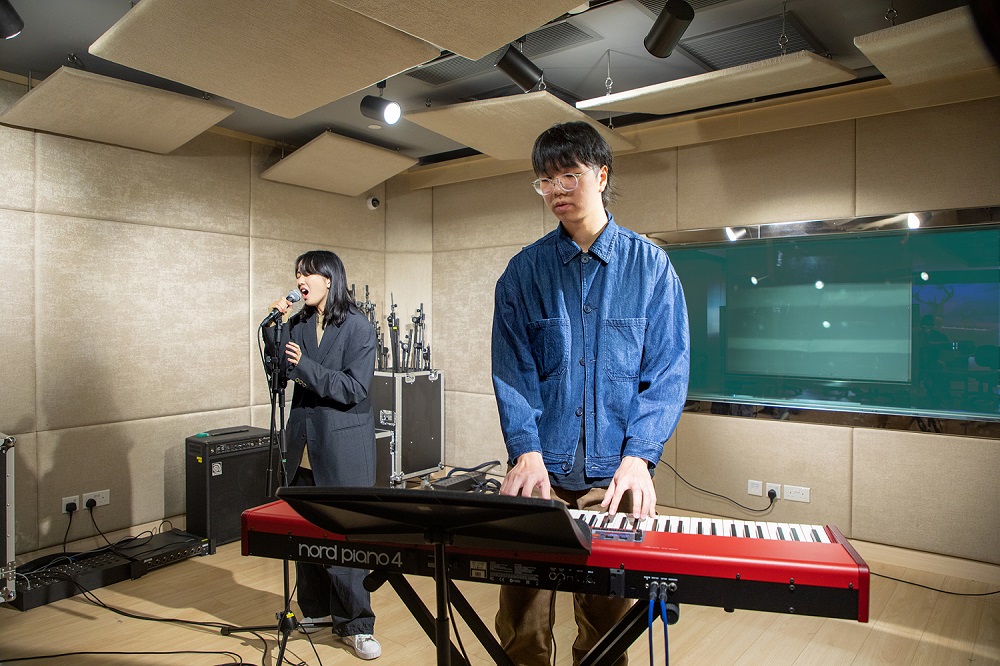

Anna Leung, a singer-songwriter and producer who has released two albums under the stage name Anna hisbbuR, says she initially thought she would only work behind-the-scenes in music, but when she got to HKBU she discovered her passion in creating songs and eventually took the microphone herself.
The budding artist is one of the Year 4 students in the first cohort of the Bachelor of Music (Hons) in Creative Industries programme, which offers two concentrations, namely Scoring for Film, Television and Video Games, as well as Popular Music Performance and Songwriting. “Although I major in Film Scoring, I can also take Popular Music courses. This has helped me develop skills in both areas and pushed me to produce and release my own songs,” says Anna. She founded a recording label in 2020 and has been releasing music ever since.
Launched in 2019/20, the programme is the first-of-its-kind programme funded by the University Grants Committee in Hong Kong. It aims to nurture students to be music professionals by cultivating their abilities to compose music for the screen and visual media, produce and perform popular music, as well as hone their skills in music technology.
Nurturing a new generation of music professionals
“Our programme recognises students’ musical potential and creativity, and we aim to empower students with a well-rounded education while helping them to harness the knowledge and skills in music production, so they can go on to have careers in the music and creative sectors,” says Dr Edmond Tsang, Director of the programme and Lecturer of the Academy of Music, who is also an award-winning Cantopop writer, arranger and producer.
According to Dr Tsang, the programme gives students ample opportunities to learn from and engage directly with creative professionals. The teaching team consists of industry experts including record and concert producer Mr Edward Chan, who is also Adjunct Lecturer of the Academy of Music, screen and music composer Mr Day Tai and composer, arranger and producer Mr Adrian Chan. In addition, renowned singers and creative practitioners are invited to hold workshops and sharing sessions, where they demonstrate how to record a live show or produce music, enabling students to link learning to the real world.
Students can also explore diverse approaches to creativity and gain hands-on learning experience through coursework and live performance workshops. “Each year, the students organise a pop music concert, where they plan, promote and perform the music they have created. This annual student-run event is not only an excellent opportunity for the students to apply their knowledge and skills in a live music performance, but it also showcases the talents of our students,” says Dr Tsang.
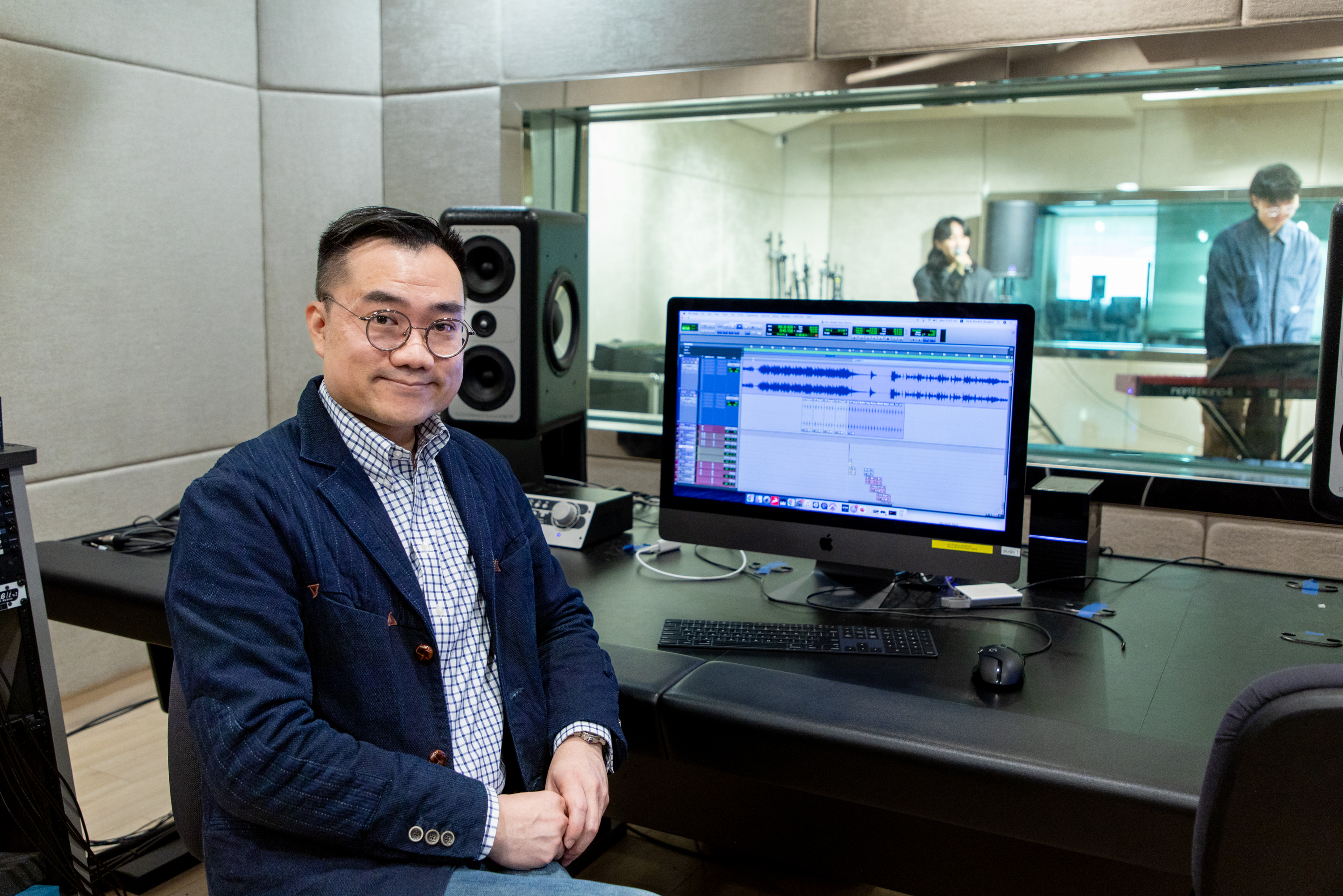

Gaining work experience in music production
Students of the programme emerge as some of the most in-demand talent in the industry. Almost all 14 undergraduates of the first cohort are already working with professionals in the fields ranging from popular music songwriting, arranging to production and performance as well as scoring for films and television shows.
Michael Wong, a Popular Music Performance and Songwriting student, is now working with Mr Edward Chan and his music production team. One of his most memorable experiences was creating the sound design of the music video What the Work Says of popstar Keung To.
“For this music video, I produced the Foley sound effects, which are tailor-made sounds created during post-production. I made sound effects such as the sounds of footsteps, explosions, breathing and ambiance, which were then used to replace the film sound recorded on set to enhance the quality of the audio,” says Michael. He is glad that he was able to apply the knowledge of sound design and audio post-production he learnt in class to this project.
Creativity is key
When not in class, students often can be found in the learning spaces at the Academy, which feature a professional recording studio, a band room, a live house, and laboratories. It was at the recording studio that Anna recently produced and recorded her new song.
She credits the support and resources provided by the University as one of the reasons why her career has launched quickly. She says, “I find it incredibly helpful that the University gives us the opportunity to experiment with different approaches to creating music. Besides being able to seek advice from our teachers, my classmates and I often gather after class and experiment at the studio for hours until we are happy with the results.” These efforts have not only enabled the class to unlock new musical ideas, but also helped the students develop into a close-knit community.
Creativity is at the heart of learning, and Dr Tsang believes it is also a prerequisite for music professionals. “The students of our programme are full of ideas, and a lot of them have a good foundation in music and can play multiple instruments. They are also eager to try different methods of music-making and discover something new. My hopes are that our students can realise their potential at the University, increase their creativity, and apply their talent,” he says.
